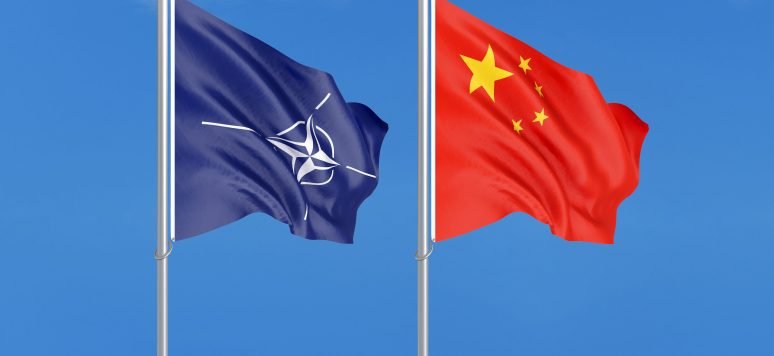Beijing, 13 July 2023 (TDI): China has strongly refuted NATO’s recent accusations that China poses a challenge to the interests and security of the bloc.
The Chinese government firmly opposed any attempts by the military alliance to expand its presence into the Asia-Pacific region.
In the statement, the Chinese mission said Beijing opposed NATO’s “eastward movement into the Asia-Pacific region” and warned: “Any act that jeopardizes China’s legitimate rights and interests will be met with a resolute response.”
NATO issued a strongly worded communique during a two-day summit in Vilnius, Lithuania, where it stated that the People’s Republic of China (PRC) undermines NATO’s interests, security, and values with its ambitious and coercive policies.
NATO heads of state highlighted the PRC’s use of various political, economic, and military tools to expand its global influence while maintaining an opaque strategy and intentions regarding military buildup.
The communique also pointed out China’s engagement in hybrid and cyber operations, confrontational rhetoric, and dissemination of disinformation that target NATO allies and harm alliance security.
The NATO declaration issued on July 11, builds upon the Strategic Concept released by the alliance last year. This marked the first occasion where NATO explicitly acknowledged the threats arising from China’s ambitions and policies.
The declaration recognizes the significance of the Asia Pacific region to NATO, as developments in that area directly impact Euro-Atlantic security. It took major decisions to adapt alliance for future.
In response, the Chinese mission to Europe issued a statement emphasizing that the China-related content of the communique disregarded basic facts, distorted China’s position and policies, and intentionally discredited the country. China firmly opposed and rejected these allegations.
NATO Secretary General Jens Stoltenberg acknowledged that China is not considered a NATO adversary and that China’s coercive behavior increasingly challenges the rules-based international order.
Stoltenberg cited China’s refusal to condemn Russia’s actions against Ukraine, its threats toward Taiwan, and its significant military buildup as evidence of this behavior.
As tensions between China and NATO persist, both sides are expected to continue their dialogue and work towards understanding each other’s concerns while seeking opportunities for cooperation in areas of mutual interest.
According to the Chinese Ministry of Ecology and Environment, John Kerry, the U.S. Special Presidential Envoy for Climate, is scheduled to visit China from July 16 to 19. During this time, representatives from both countries will engage in comprehensive discussions on collaborative efforts to tackle climate change, as stated by the ministry.
The US president stated very clearly its commitment to deal with global challenges and take prompt actions on that, and one of those challenges is defined as the “China Threat.”
Japan’s PM also made his second appearance at the NATO summit. As NATO expands its eastward presence with a new regional office in Japan, its presence at the NATO summit holds significance for the Asia Pacific region. NATO’s Secretary General also declared, “No partner is closer than Japan.”
Read More: PM Kishida at NATO summit
China also specifically condemned NATO’s objection to China and Russia’s deepening strategic partnership and China’s nuclear arsenal expansion and diversification.
About NATO Summit
NATO summit meetings provide periodic opportunities for the Heads of State and Governments of NATO member countries to discuss important issues facing the Alliance and provide strategic direction for its activities. This year NATO summit was held in Vilnius, Lithuania, on 11-12 July 2023.








